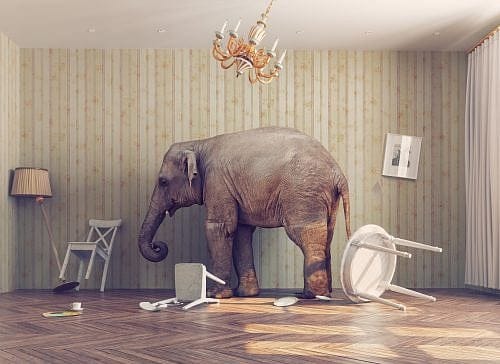Why Educational Policies Fail: The Elephant in the Family Room

It's so huge that most of those in the position of making education policy want to pretend the elephant isn't there. The problem to be solved in their eyes is not why increasing federal and state funds targeted to low-performing schools and students over 50 years has been generally ineffective, but how our educational institutions for K-12 can address low achievement despite the fact that the various education interventions, strategies, policies, and regulations that policy makers in the U.S. Department of Education have imposed have mostly failed to move the needle. Might other agencies do better? We need to task agencies that don't assume that classroom teachers are the source of unequal educational outcomes.
While it is readily acknowledged (and shown in many studies) that low-performing groups begin their school experiences in preschool or kindergarten with fewer language skills than other groups – one example: a smaller vocabulary — it is unacceptable to policy makers that teachers and schools don't equalize group achievement after six to 12 years of schooling. Someone or something must be held accountable for what is claimed as the failure of public education to produce similar academic results across groups. The most obvious candidates have been hapless classroom teachers.

